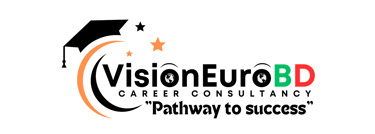
Opportunity Card (Chancenkarte)
What it is
A points-based residence that lets non-EU candidates come to Germany (up to 1 year) to find a qualified job. You can work part-time (up to 20 hours/week) and do short job trials. After you secure a suitable job, you switch to a work/residence permit.
Basic requirements (quick check)
Completed vocational training (≥2 years) or a university degree
Language: German A1 or English B2 (higher German = more points)
Financial means (e.g., blocked account or declaration of commitment)
If your qualification is fully recognized in Germany, you may qualify directly without points
Blocked Account Support (Financing Option)
We collaborate with German financial institutions to help you set up the required blocked account.
Flexible repayment: candidates can repay the amount after getting and starting a full-time job in Germany, with flexible installments and no need to hurry.
Fast onboarding, guidance on documents, and transparent fees (subject to eligibility and partner terms).
What we do for you
Eligibility scoring and personalized checklist
Recognition guidance (Anabin/ZAB) and language plan
Visa file preparation and appointment support
Blocked account setup + financing option through our partner institutions
Job-search coaching and employer outreach
Seamless switch to work permit after job offer
Ausbildung (Vocational Training) — Pflege & Hotelfachmann
Tracks we offer
Pflege (Nursing) Ausbildung — 3 years, paid training in hospitals/elderly care, strong job prospects after graduation
Hotelfachmann/-frau (Hotel Operations) — 3 years, paid training in hotels (front office, service, housekeeping, F&B)
Who can apply
Secondary school completion (or higher)
Fit for the profession (medical/character checks for nursing)
German language: typically B2 for Pflege; B1–B2 for Hotelfachmann (B2 preferred by many schools/employers)
What you get
Monthly stipend (paid training)
Dual system: workplace + vocational school
High chance of permanent job and residence after completion
Our support
Language and document roadmap (B1→B2 path, where needed)
CV formatting and interview coaching
Contract and visa coordination
Pre-departure briefing and arrival registration guidance
Typical documents
Passport, CV, school certificate + translations, language certificate (Goethe/telc), police clearance, medical check, motivation letter. Healthcare experience letters help for Pflege.
FAQs
Can I start Pflege at B1? Yes, but aim for B2 to meet school and clinical communication requirements.
Is Ausbildung paid? Yes, you receive a monthly stipend.
Duration? Usually 3 years; prior learning may shorten this in specific cases.
